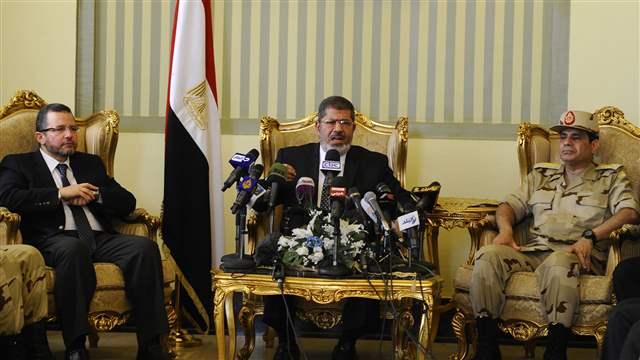Content from the Brookings Doha Center is now archived. In September 2021, after 14 years of impactful partnership, Brookings and the Brookings Doha Center announced that they were ending their affiliation. The Brookings Doha Center is now the Middle East Council on Global Affairs, a separate public policy institution based in Qatar.
Nearly two years after ousting President Muhammad Morsi, Egypt’s military continues to crack down on the Muslim Brotherhood. Much like during Egypt’s 1952-54 political transition, the recent interactions between the powerful armed state bureaucracy and the influential religious organization have had a major impact on the country’s political trajectory. In both instances, the military and Muslim Brotherhood initially cooperated before ultimately clashing violently. How has each entity determined what approach to take toward the other? What does a continued imbalance in civil-military relations mean for Egypt’s future?
In a new Brookings Doha Center Analysis Paper, Omar Ashour examines the legacies and patterns of cooperation and conflict between the leaderships of Egypt’s military and the Muslim Brotherhood. Relying on extensive field research, he analyzes how each entity has made its critical decisions regarding the other by applying various decision-making models. Ashour considers the impact of cost-benefit analysis, organizational dynamics, factional disputes, and psychological factors to gain a deep understanding of the leaders’ motives.
Read “Collusion to Crackdown: Islamist-Military Relations in Egypt“
Ashour concludes that Egypt’s prospects for social stability and economic recovery will remain bleak if the relationship between the military and the Muslim Brotherhood is not redefined within institutional, democratic rules of political competition. He argues that Egypt’s military should embrace a balanced civil-military relationship to realize broad, long-term benefits and avoid otherwise inevitable and costly clashes with segments of Egyptian society. As for the Muslim Brotherhood, Ashour recommends that it reevaluate its recent decisions and work to develop a sustained, solid, and cross-ideological civilian front that can pressure the military to leave politics and allow for democratization.



